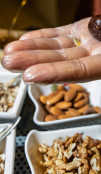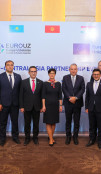We are the bosses, we are the workers

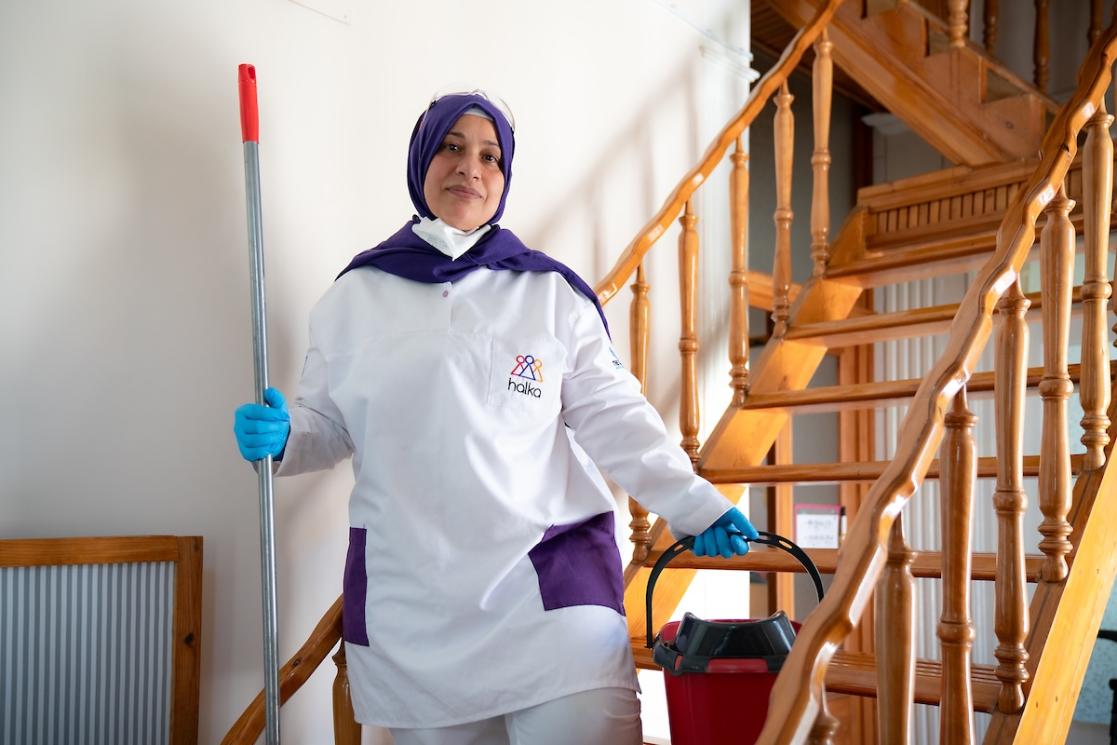
EUROPEAN UNION, 2025
“We use masks to avoid the smell of the chemicals. This is the most important thing for me.”
The Halka Co-operative in Alsancak, Izmir, has given Turkish and Syrian women the chance to take control of their own working lives.
Launched in 2020, it is supported by the EU and The World Bank. The Halka Co-operative is a cleaning business, giving women the chance to work together organising, managing and delivering their services to local clients.
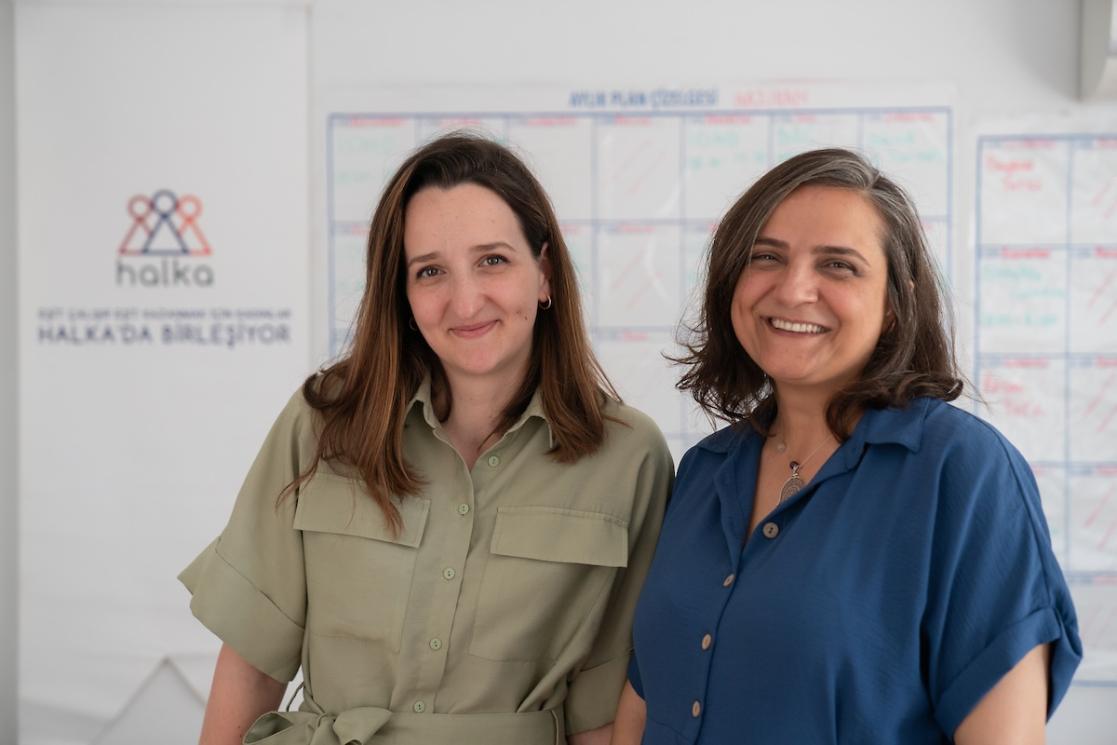
EUROPEAN UNION, 2025
The Co-operative’s Project Manager Abela Rızvanska Davut and Co-founder Özge Sever.
“Halka Co-operative has 15 partners. Our friends, actively working as cleaning professionals, are all registered and they have job security. Our Syrian refugee friends all have legal work permits. Women work together, make decisions together and they share together,” said co-founder Özge Sever.
Teamwork is key. The women plan their day and share common experiences. They also benefit from informal communication and receive training in business and working practices.
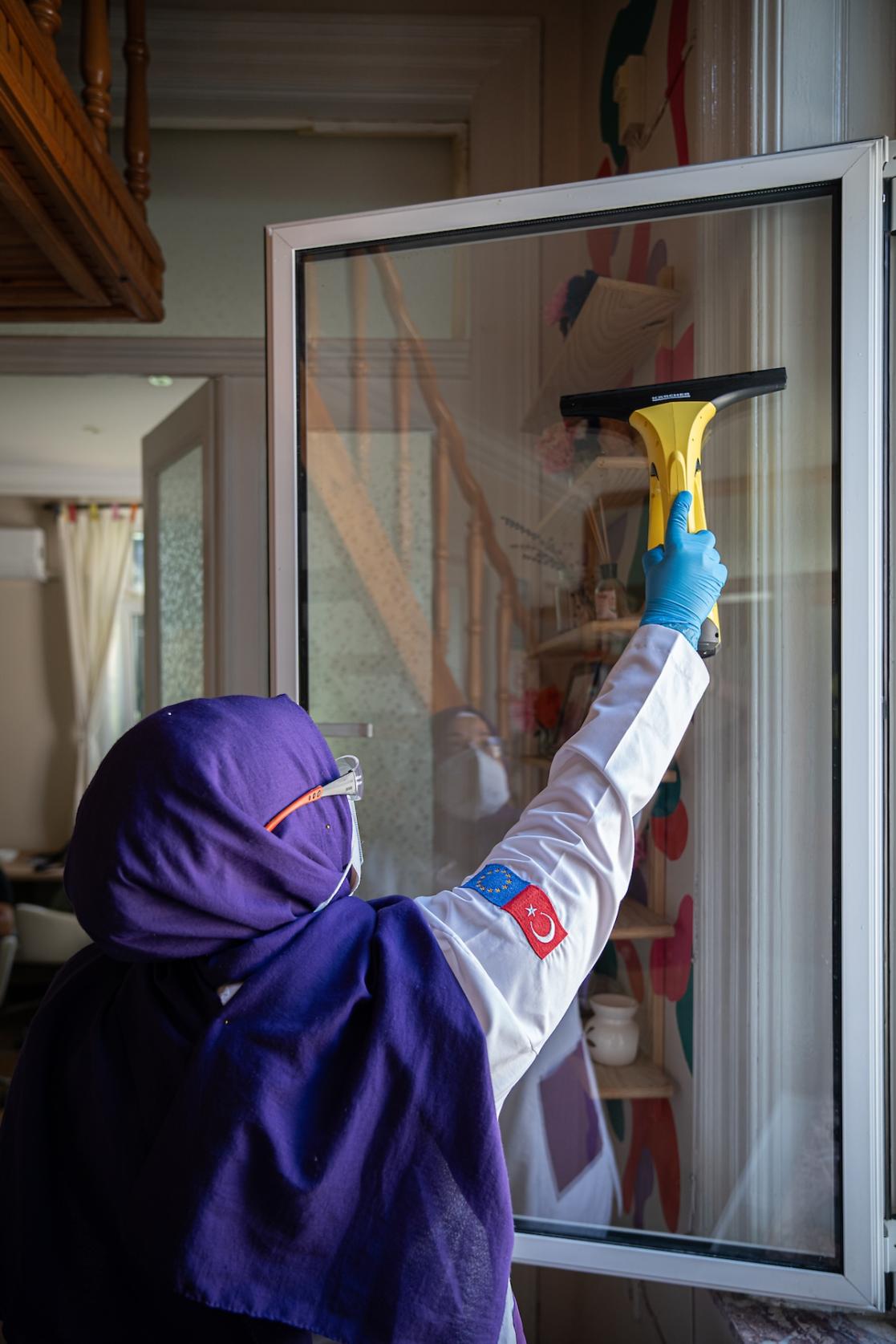
EUROPEAN UNION, 2025
Health and safety is also important. When Meryem Neccar first joined the “Halka”, she thought it was all about cleaning services. She now pays extra attention to working safely.
“We wear goggles, gloves, and masks while we are working. We use masks to avoid the smell of the chemicals. This is the most important thing for me. Before the smell affected me badly. But after the training I never had any problems.”
With a stake in the business, the women are diligent in their work. Using a separate cloth for each surface, they finally wipe it over with a white cloth to ensure all is spotless. This is repaid with excellent feedback from clients.
Being a member of a registered cooperative helps in many ways. It supports women in work, but also prevents the exploitation of labour.
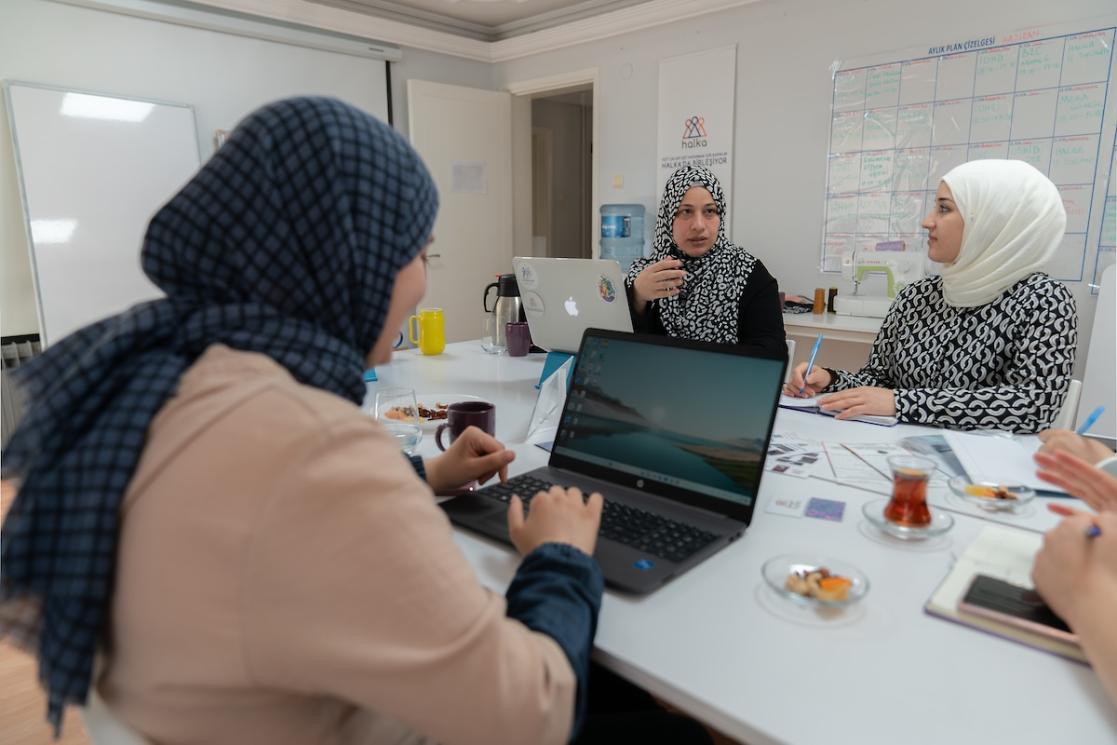
EUROPEAN UNION, 2025
Teamwork is key. The women plan their day and share common experiences.
Co-founder Özge Sever highlights the importance of demonstrating that this is possible: “When we look at the cleaning industry, we know that women, especially from the disadvantaged groups, work in the market and are more open to exploitation. In the precarious employment conditions, the business model becomes something where the clients act as bosses.”
“This is an exemplary model not just for minority communities but for everyone, all women.”
Özge added: “Women organised under the cooperative can access the job market and are able to work as registered workers, benefiting from the health and security regulations. They have direct contact with the clients here, but they also exist in the job market with a cooperative name.
Yet the labour is just one dimension. This is empowering for women. A social harmony, social benefit dimensions also emerge.”
Meryem is one of the trainers who helps prepare other women for the workplace. Transportation is supported so they can attend courses that teach good working practices, hygiene and how to use the various products that are the tools of their trade.
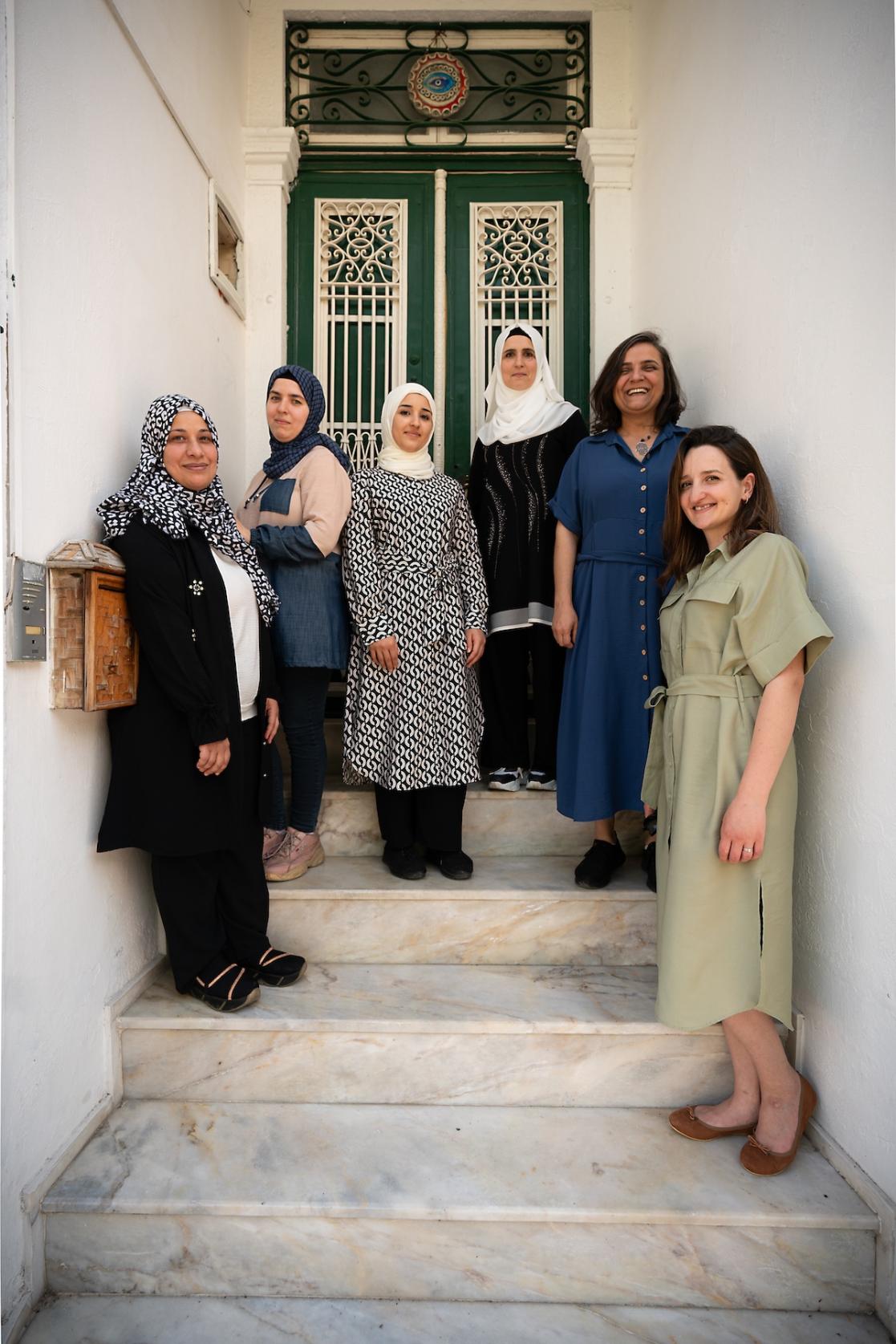
EUROPEAN UNION, 2025
At Halka the women develop a fresh sense of strength and value, building self-confidence and self-esteem
Childcare is provided
Perhaps more importantly, childcare support is provided so women can train and work. This is a perennial problem for many women as they seek to earn an income.
The Co-operative’s Project Manager Abela Rızvanska Davut says “Someone must take care of the children, spend some time with them so the mothers can go to work. This a huge problem for women.”
“While their mothers were in training, I took care of 45 the children. We did all kinds of activities.”
“We also tried to support the children’s education. Because some of the children knew Turkish but some didn’t. So, we tried to teach something by playing games with them.”
“Their teachers are also happy because the children never had any prior Turkish, but they get education in Turkish, and they say that’s a great achievement.”
“The education we give here is complementary and also functions as a pre-school education.”
Meryem has experienced the difficulties of working in vulnerable employment. At Halka the women develop a fresh sense of strength and value, building self-confidence and self-esteem.
She said: “I wore myself out during four or five years. I worked at a restaurant, I worked at a bakery. I worked for long, long hours. I stood up on my feet from morning to night. That was hard to put up with. I was paid less than I deserved.”
She added: “I don’t need anyone, anymore. I work and I make money. Prior to this, yes, I was a worker. There was a boss, I took orders, did what I was told.”
“Now at Halka, we decide together as partners, we make the call, we share our opinions. We don’t have a boss anymore. We are the bosses, we are the workers.”

EUROPEAN UNION, 2025
“Look where I was, look where I am now…”

